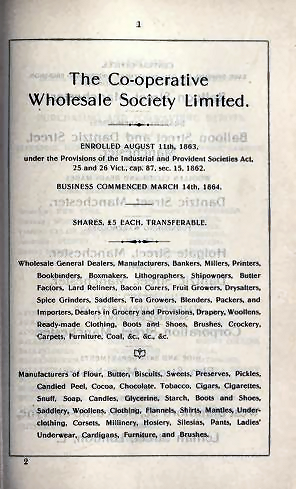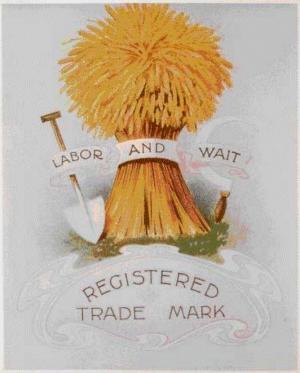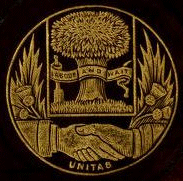A Hucknall History
Industrial Developments
The Co-operative Wholesale Society Limited
Attracting wider attention of one of the biggest UK organisations must have been a major catch for the Unwin Land Society. They'd offered one free acre of an extendable land plot to lure a secondary industry starting up in Hucknall Huthwaite. Amount might seem trivial against international enterprises, but negotiations commenced with Co-operative Wholesale Society representatives through early months of 1906. It thus enticed interest and was regarded as sweetening the deal when C.W.S. reached further agreement to purchase another 1½ acres in order to erect a considerable sized factory.
Despite reportage barely giving mention to this areas established renown among the stockinger cottage industry, historic repute had probably played no small part influencing the CWS into relocating an existing factory here. Early Stockingers were sometimes given Manorial subsidies just to keep whole families gainly occupied. A comparatively low income district must be another plus factor any major employer considers. Above all however, may well be the workers skilled repute. In our case that was proudly inherited from desperate dependency, to assert recognition for Huthwaite alongside Sutton as widely known leading places for producing quality hosiery plus textiles. Introducing a huge CWS factory ended up just one well recognised brand name to have built on and further modernised that long association producing hosiery.
A Co-operative movement had been pioneered in Rochdale back in 1844. Some twenty years later and an originally named North of England Co-Operative Wholesale Society launched 300 individual enterprises across Yorkshire and Lancashire. Beginning in 1863 from modest premises in Manchester is how that city centre became home base throughout its rapid growth wider afield. Reflecting broader interests from 1872, the title was somewhat shortened to become the Co-operative Wholesale Society. Perhaps best known as C.W.S., these initials gained sufficient familiarity for long branding the companies diverse range of goods.
 The first registered trademark of the CWS was its original logo. This aimed to convey message that whereas a single stalk of wheat may easily be broken, their wheatsheaf symbolised company strength in unity. Wording across a shovel and sickle delivers
The first registered trademark of the CWS was its original logo. This aimed to convey message that whereas a single stalk of wheat may easily be broken, their wheatsheaf symbolised company strength in unity. Wording across a shovel and sickle delivers  clear message to "Labor and Wait". But in a deliberate choice to use American spelling in times of US Civil War lay another statement, demonstrating support to abolish slavery.
clear message to "Labor and Wait". But in a deliberate choice to use American spelling in times of US Civil War lay another statement, demonstrating support to abolish slavery.
Having started out as a united cooperative of local cooperatives, an updated logo found embossed on CWS annual reports showed the further joining of a Scottish CWS (SCWS) dating from 1868.
After spanning 150 years, the company could proudly boast a fuller detailed history of major acquisitions and mergers. The CWS ultimately merged with Co-Operative Retail Services in year 2000, forming the currently recognised Co-operative Group retail outlets.
28 Jun 14 by Gary Elliott Updated 29 Jun 14
